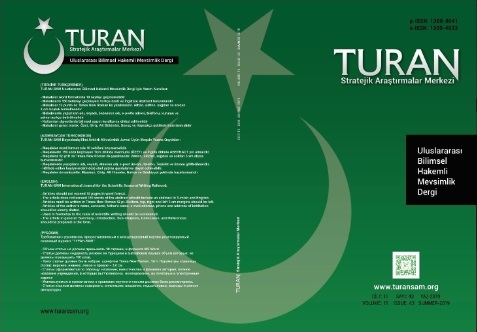İŞBİRLİKLİ ÖĞRENME YAKLAŞIMININ ÖĞRENCİLERİN COĞRAFYA DERSLERİNDEKİ AKADEMİK BAŞARILARINA ve TUTUMLARINA ETKİSİ
THE EFFECT OF COOPERATIVE LEARNING METHOD ON THE STUDENTS’ ACHIEVEMENT AND ATTITUDES IN GEOGRAPHY LESSON
Author(s): Müberra Koçyiğit, Ali Osman EnginSubject(s): Geography, Regional studies, School education, Educational Psychology, Methodology and research technology
Published by: Sage Yayınları
Keywords: Cooperative learning model; Jigsaw II; Geography;
Summary/Abstract: Study was conducted to research the effect of “Jigsaw II Technique” to be one of the “Cooperative Learning Approach” on the students’ academic learning success and gains in the 10th classes geography lesson’s learning subject of “Turkey’s Population” located in the unit of “A Spatial Synthesis Turkey.” In this study Cooperative learning technique and traditional question-answer and explaining were compared and “Pretest-Posttest Control Group Experimental Research Method” was used. In the control group the choosen geography lesson was carried out by using traditional methods and in the experimental group the “Jigsaw II Technique” being one of the “cooperative Learning Approaches” was used. Achievement test and attitude scala were applied such as pretest and posttest. In the end of the study afew students having representation ability of representing the experimental group was selected and their ideas were defined by using semi stuructured interview forms. According to the applied interview results it was understood that the cooperative learning process was more effective in geography lesson for improving the learning success than the traditional teaching methods called question-answer and explaining methods. In other words it was understood that the cooperative learning method affected the students’ attitudes positively in geography lesson.
Journal: TURAN-SAM
- Issue Year: 11/2019
- Issue No: 43
- Page Range: 174-188
- Page Count: 15
- Language: Turkish

